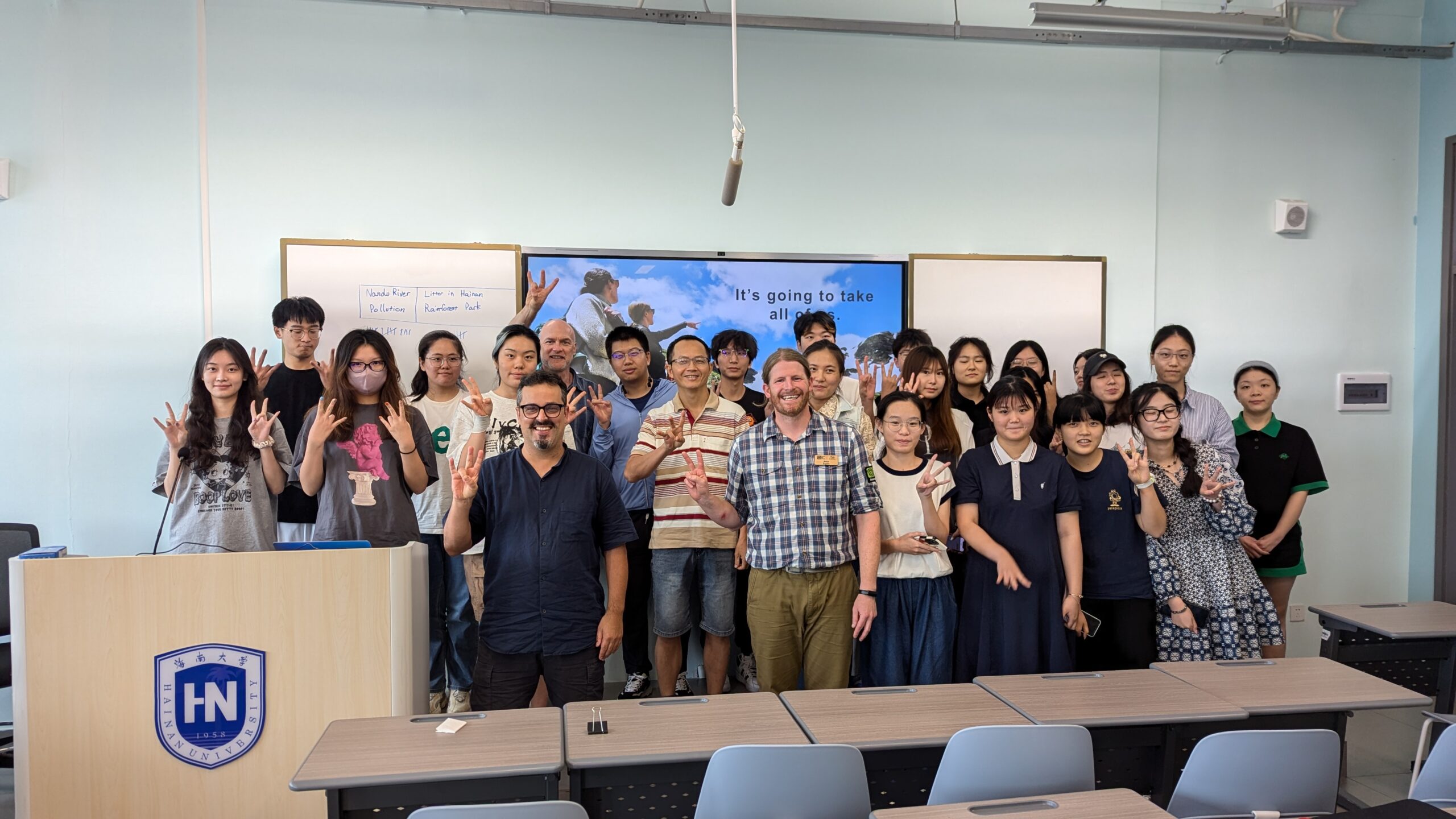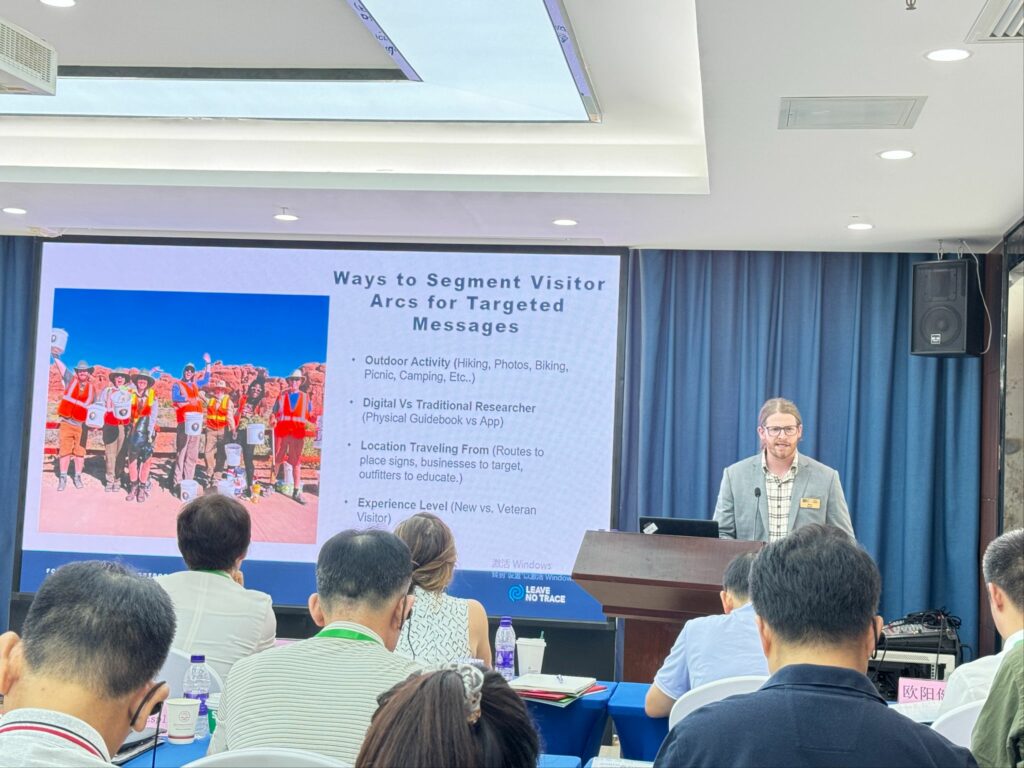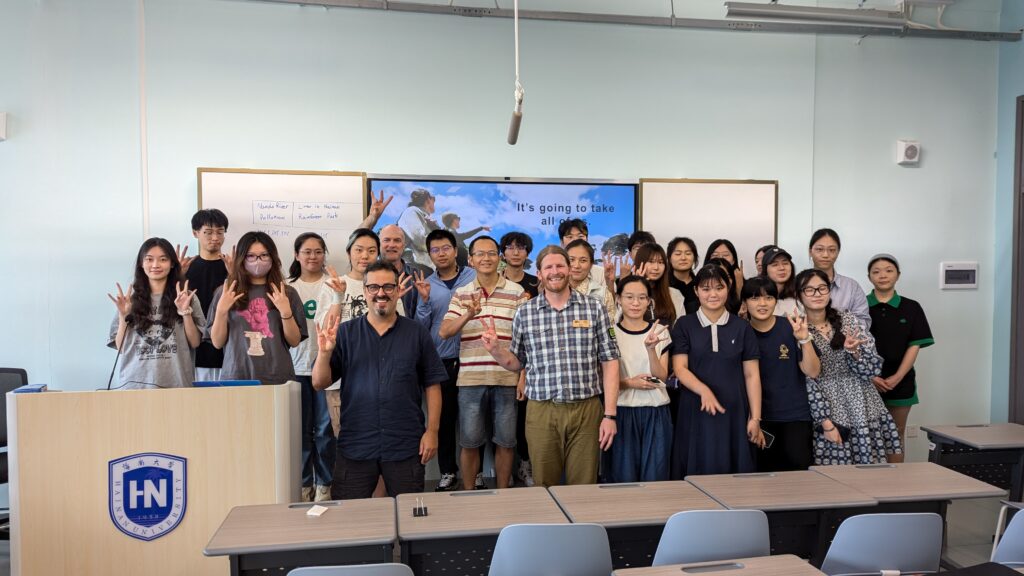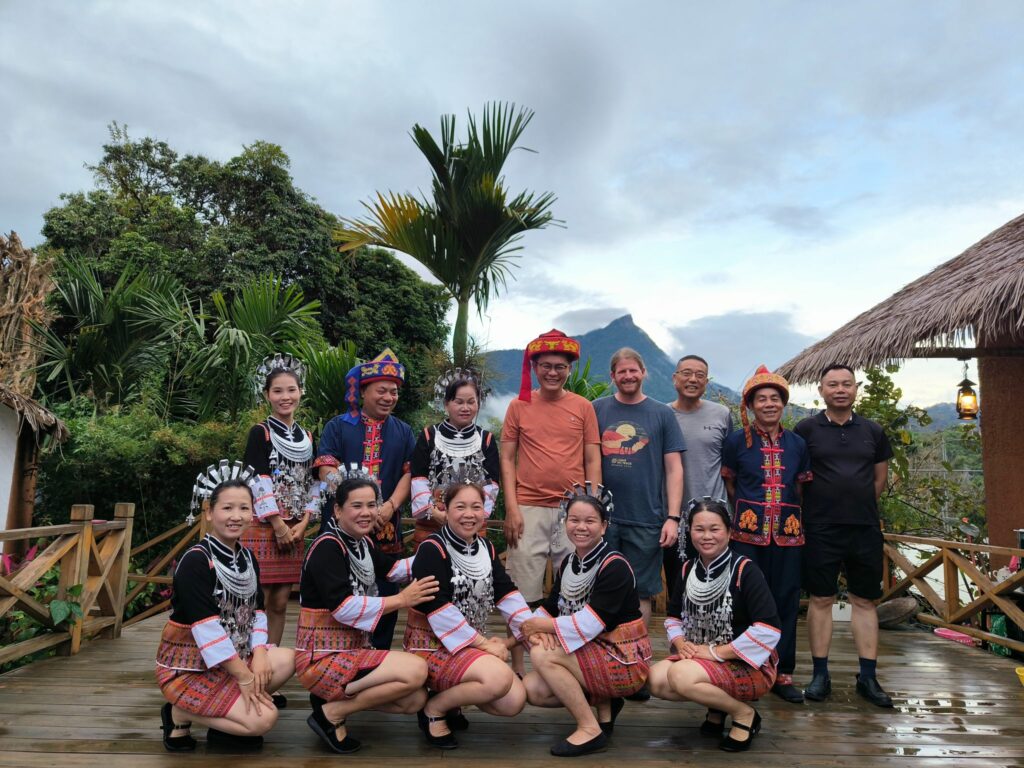News & Updates
Collaborating for Conservation in Hainan, China


In an era where environmental conservation is increasingly becoming a global priority, collaboration between nations is more essential than ever. That’s why Leave No Trace was honored to visit China and participate in the recent International Symposium on the Management and Practice of National Parks in the United States. This important gathering brought together global leaders, policymakers, and environmental organizations to share strategies, research, and best practices to protect and preserve the world’s most precious natural spaces.
As a presenter at the event, Leave No Trace joined forces with Arizona State University, the US National Park Service, and the Global Sustainable Tourism Council to highlight the significance of international collaboration in shaping the future of sustainable tourism and environmental education.

The International Symposium emphasizes the necessity of knowledge sharing. The challenges that face one country’s natural spaces—such as impacts from human recreation, wildlife protection, and climate change—apply globally. China is about a decade into building its national park system—presenters shared over 100 years of applicable lessons from the US system during the event. Through open dialogue, shared experiences, and cross-cultural exchange, countries can develop more effective and innovative solutions to these global challenges.
Leave No Trace has long championed the idea that minimizing human impact on nature is critical to ensuring that parks and protected areas are preserved for future generations. The organization’s participation in the symposium further strengthens its commitment to sharing expertise in reducing human-caused damage in wilderness areas domestically and abroad. The symposium featured presentations on visitor-use management systems, policy frameworks, organizational structures, responsible recreation, concession management, and sustainable development of gateway communities
Leave No Trace and HAITC University
As part of the international symposium, Leave No Trace led an advanced course for students at the Hainan University—Arizona State University Joint International Tourism College, or HAITC. HAITC is an innovative joint college and a Sino-foreign cooperative tourism institution approved by the Ministry of Education of China in May 2017. Upon graduation, the students enrolled in these programs will go on to be leaders in outdoor education.

As global travel grows, the strain on natural spaces increases, requiring a concerted effort to educate tourists on minimizing their impact. Leave No Trace principles serve as a global standard for responsible outdoor ethics, offering practical, actionable advice for individuals and communities worldwide.
During the workshops, Leave No Trace highlighted how these principles—centered around responsible recreation—can be adopted worldwide to help mitigate the environmental impact of tourism. From reducing waste and minimizing campfire impacts to respecting wildlife and staying on designated trails, Leave No Trace empowers tourists and outdoor enthusiasts to be stewards of the land, no matter what country or ecosystem they encounter.
Educational workshops with international students made it clear that the Leave No Trace principles resonate globally. These shared values allow countries to collaborate more effectively on sustainable tourism practices, ensuring that visitors can enjoy nature without causing irreparable harm, no matter where in the world they visit.
Field Trip To Hainan Tropical Rainforest National Park
Leave No Trace and symposium participants were also allowed to learn from our Chinese counterparts. Stakeholders took a two-day field trip to Hainan Tropical Rainforest National Park, one of China’s five pilot national parks. This park was established to protect many endemic species unique to Hainan island, including the Hainan black crested gibbon. The Hainan black crested gibbon is critically endangered, and it is estimated that there are 37 primates left in the worldwide population.
During the field trip, participants from both countries could share best practices and ecological knowledge from their respective areas of expertise. This included reviewing park signage, ranger touchpoints, wildlife management, concessioners, and park engineering. Additionally, the delegation met with the Li people, who are Indigenous to Hainan Island and live in many of the park’s main gateway communities. The Li community provides valuable visitor services and is eager to actively partner with the national park by incorporating nature education into their work with park visitors. An extra thanks to the Li people for being so welcoming and providing the group with incredible traditional foods!

Leave No Trace’s continued commitment to building strong partnerships with national parks, governments, academic institutions, and conservation groups worldwide is key to the future of sustainable tourism and environmental stewardship. Events like the International Symposium on National Parks are powerful reminders of what can be achieved when nations unite to protect our planet.
A Bright Future for Global Conservation
Leave No Trace’s participation in this global dialogue, alongside the US National Park Service, Arizona State University, and the Global Sustainable Tourism Council, is a testament to the growing awareness that caring for the planet transcends borders. As more countries and communities embrace sustainable practices, the future of conservation looks bright. The lessons learned, and partnerships formed at the International Symposium on National Parks will undoubtedly pave the way for a future where outdoor spaces are preserved and cherished for future generations.
To learn more about the symposium or incorporate Leave No Trace in your park or program, contact Brice Esplin, Director of Sustainable Tourism and Partnerships. ([email protected])
Let’s protect and enjoy our natural world together
Get the latest in Leave No Trace eNews in your inbox so you can stay informed and involved.
